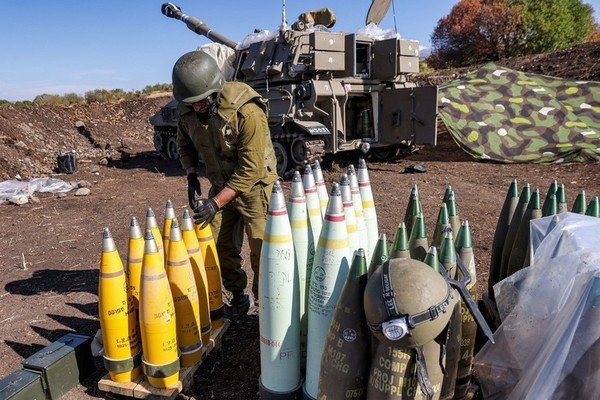
Britain is the latest country to shift its position on arms sales to Israel, which has been dependent on international weaponry for an 11-month assault on Gaza that has killed more than 40,000 people.
Here is how different countries have responded to Israel’s war:
Banned or restricted arms sales
Britain
The foreign secretary, David Lammy, announced on Monday that London was suspending 30 of the 350 existing arms licences. He cited a two-month internal review that found Israel, as an occupying power, had not fulfilled its duty to ensure the delivery of supplies essential to “the survival of the population of Gaza”.
The decision, criticised by rights groups as a half measure, does not include UK-made parts for F35 advanced fighter jets that Israel is using.
Italy
The foreign minister, Antonio Tajani, announced in January that Rome had decided after 7 October – the day Hamas attacked Israel, sparking the war in Gaza – to send no more weapons to Israel. However, the government has since conceded that previously signed deals were being respected.
Italy is the third biggest supplier of military equipment to Israel, but contributes less than 1% of Israel’s total arms imports, according to the London-based research charity Action on Armed Violence.
Spain
The Spanish foreign minister, José Manuel Albares, said in January that Spain had not sold arms to Israel since 7 October. In May, the government went further, announcing it would ban ships carrying weapons to Israel from docking at Spanish ports. Madrid has been one of Europe’s most critical voices on the Gaza offensive.
Canada’s parliament in March agreed in a non-binding vote to halt future military sales to Israel. The foreign affairs minister, Mélanie Joly, told the Toronto Star at the time that arms shipments would stop: “It is a real thing,” she said.
Belgium
In Belgium, a federal state, local authorities have restricted weapons sales to Israel. The Belgian government has also campaigned for an EU-wide ban.
The Netherlands
A Dutch court in February ordered the government to stop supplying F35 fighter jet parts to Israel because of the clear risk of serious violations of international humanitarian law. However, the ruling did not cover components sent to states such as the US that could then be delivered to Israel.



